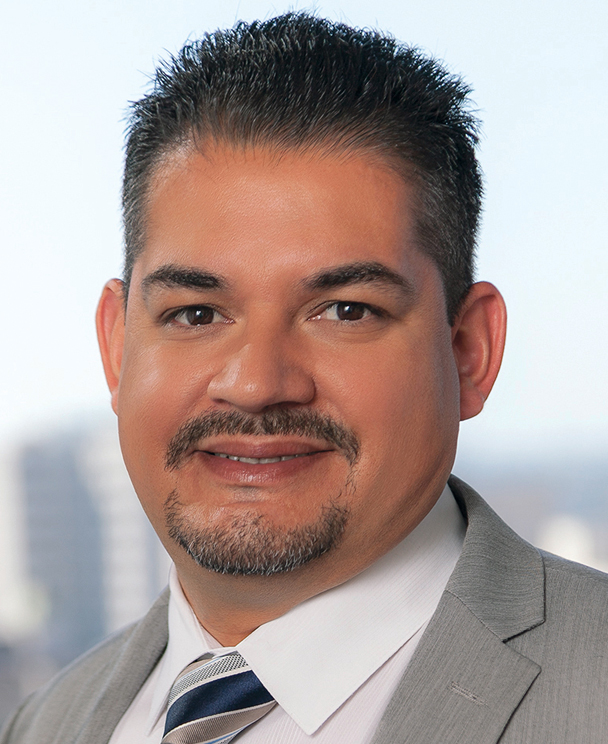APTA Committee Profile: Bus Operations
4/9/2025
BUS OPERATIONS COMMITTEE | 541 Members

Salvador Llamas, Chair
Chief Operating Officer
Alameda-Contra Costa Transit District
Oakland, CA
APTA Staff Advisors: Lisa Jerram, Senior Director, Bus Operations & New Vehicle Technologies; Tdisho Pendleton, Senior Program Manager, Technical Services, Technical Services & Innovation Department
What is the role of APTA’s Bus Operations Committee?
The Bus Operations Committee provides a forum for general managers, chief operating officers, and directors of transportation to discuss and share best practices around the management of bus transit operations.
We champion innovation, advocate for our shared interests, and lead the way toward a more robust and visionary future. An example is the incredible collaboration between our committee and other APTA committees, where we collectively seek out challenges with a resilient commitment to inspire solutions from the industry and share them.
What are the committee’s top priorities for the year?
A survey of committee members resulted in the following seven priorities: driver assaults/safety; recruitment and retention; operating funding challenges; ZEB operations; unhoused people on transit; structuring service post-COVID; and mega-event planning.
How does the committee engage its members in these priorities?
When planning our committee meetings, we use the seven priorities to select meeting topics and invite committee members and other SMEs to present best practices, solutions, and ideas to better manage challenges and impacts.
Can you describe some practices adopted by the industry that are a result of the work of the committee?
There has been a lot of focus recently on transit worker assault prevention. We took this topic on in 2024 with presentations on Risk Assessment of Worker Assaults from four member agencies, and APTA provided a presentation on Transit Worker Assault Prevention. Many best practices and creative solutions came out of these efforts.
What attracted you to the industry and to the Alameda-Contra Costa Transit District [AC Transit]?
I have dedicated my entire career to service—first in the United States Marine Corps after graduating High School. I then moved to public transportation, serving the Los Angeles County and San Francisco Bay Area communities.
I remember being around four years old on a cold rainy day, standing at a bus stop holding my mom’s and sister’s hands while my mom also held my brother’s hand. It was windy and pouring down so hard; the rain fell at what looked like a 45-degree angle. We stood there embracing each other to try and stay warm for several minutes until we saw the headlights of a Southern California Rapid Transit District (RTD) bus approaching. As we boarded, the driver greeted us with a smile, and the bus was so warm and dry, I could not stop smiling for two reasons: the comfort of the RTD bus (#1) taking us to Huntington Park City Hall where my younger sister and I were getting vaccines to start school (#2).
I would probably not be the COO at AC Transit right now if that RTD bus had not shown up, and if the city did not offer a free vaccine program for school children. This experience has kept me devoted to our industry.
Please describe your role at AC Transit.
In my current role as COO, I am responsible for leadership oversight of AC Transit’s operations department to ensure safe, reliable, and sustainable transportation services are provided to San Francisco East Bay residents and surrounding communities. Departments within my area of responsibility include transportation, maintenance, operations control center, road supervision, training and education, and technical services.
How is the work of the committee reflected in your own agency?
AC Transit is very active, not only in the Bus Operations Committee, but in many other APTA committees. This is extraordinarily rewarding; we have executive, director, and manager-level employees sharing impacts to our agency during committee meetings and bringing back industry best practices to our day-to-day operations.
APTA’s committees play an important role in fulfilling the association’s commitment to developing industry leaders. Please share how your committee encourages young professionals to participate in its work.
We love hosting APTAU Leadership programs’ young professionals and supporting their research efforts. During the committee meeting at APTA’s TRANSform Conference, we hosted two Leadership APTA Capstone Presentations and recently helped conduct surveys for research projects.
How can an individual’s service on this committee add value to their career?
Very simple: immediately, they will be connected to an incredible network of transit professionals at all levels of leadership with countless years of collective experience. If there is a challenge impacting bus operations, we will find a solution. Don’t be shy; get involved by attending meetings, asking questions, presenting ideas, and staying connected!
What are the main challenges facing the public transportation industry over the coming years?
Financial uncertainty, changing regulations, the generational knowledge gap, and emerging technologies will continue to present challenges, priorities, and opportunities for the industry.